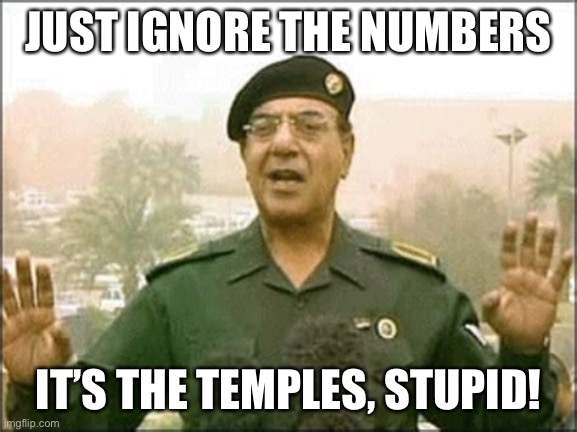Ha! My good faith question elicited a jeremiad. This is all on me. I should have been able to predict this.MG 2.0 wrote: ↑Sat Apr 09, 2022 4:54 pmYes/no…but not really. In other words I took the position that the Book of Abraham was a translation from papyri but it was somewhat of a mishmash in the sense that some of the papyri may have been missing and we of course have issues with the facsimilies. We have a scripture that was printed in serial form and then later canonized after years had gone by. The provenance chain (the place where it begins, where it springs into being…all of the moving parts) from mummies to canonization in SL is a long and somewhat convoluted one.
I wouldn’t be surprised if there are some individual issues that came packed in with an overall scriptural tome which was produced as a midrashic composition. The Book of Abraham as a whole is canonized scripture with scriptural authority and importance to LDS doctrine but there could be midrashic elements that slipped through the canonization processes which are problematical but to the average Latter Day Saint don’t make any difference. But at the same time those elements may be inspired/revelatory as they teach truths in regards to Abraham’s experiences and doctrinal teachings.
A mixed bag.
Now if I was to find out that the facsimilies aren’t a problem at all, that would be awesome. But I recognize the controversial nature of the Book of Abraham project and am willing to shelve those things that I haven’t seen scholars resolve for a fact. The reason is that I see revelation and the ancient world through the doctrines taught in the Book of Abraham. They ring true to me. Yes, some of those doctrines/ideas were being tossed around at the time of Joseph Smith BUT they had not been disseminated to mankind in scriptural form. The Book of Abraham and the voice of the ancients put those doctrines front and center for our age/time.
Another template of sorts to get ‘true doctrine’ out there. I like templates/scaffolding to project ideas and truths. Those templates/scaffoldings exist in the real world without having to come up with them whole cloth. That’s another thing that is a testimony of the restoration to me. Much of what Joseph taught was already here but it was scattered all over the place and needed to be organized and put into scriptural form with divine authority and stamp of approval.
I don’t expect that the Book of Abraham would be decanonized. Why? Because of the overall bearing it has as revealed scripture. Which I’m not at odds with at all.
As far as it is translated correctly.
I do think that there is more openness to ‘variations on the theme’ as long as one sees the composer as being proficient in their creation of the magnum opus as a whole.Morley wrote: ↑Sat Apr 09, 2022 1:22 pmMany decades ago, I was a tithe-paying, church-attending unbeliever. I was teaching the Gospel Doctrine class, but when the subject matter switched from the Old Testament to the Book of Mormon, I told the bishop that I needed to be released from the calling. I privately explained I didn't believe in the historical authenticity of the Book of Mormon, so to continue teaching would be dishonest.
That admission was the beginning of the end for me. If I had come out in Fast and Testimony meeting, I'm sure that it would have even been worse.
But things may be different these days. And different for you.
After all, it is apparent, at least to me, that God DOES work in mysterious ways his works and wonders to perform. In regards to the Book of Abraham I don’t think the whole story of its creation from start to finish (and it wasn’t actually finished if I remember correctly) is known and/or is a done deal.
The Book of Abraham is the little brother to the Book of Mormon, in a sense. If the Book of Mormon is ‘true’, which I believe enough evidence supports, then it is wise to cut the Book of Abraham some slack and be patient and willing to stick with what is known and be willing to wait for further light and knowledge to come forth in regards to issues related to some of the facsimilies, etc.
I am fully supportive of the work John Gee, Kerry Mulestein and others have done with the Book of Abraham. They are men of faith and testimony in the restoration. I am prone to go generally in their direction rather than in the direction of those that have apostatized from the church and left EVERYTHING behind.
Given away their birthright, so to speak.
I’ll leave it at that.
Regards,
MG
Thank you for responding anyway, MG.

